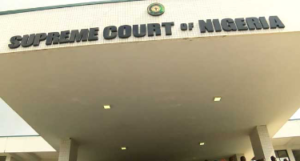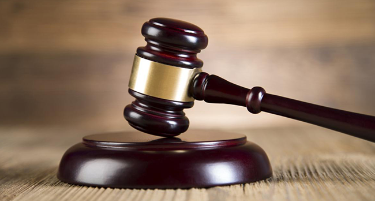In a significant legal development, the High Court of the Federal Capital Territory (FCT) has made a ruling in the case involving Senator Benson Konbowei, who represents Bayelsa Central Senatorial District under the banner of the Peoples Democratic Party (PDP). The Senator had been facing allegations of certificate forgery and was formally arraigned on March 26, 2024, on multiple charges, including the purported forgery of a National Youth Service Corps (NYSC) exemption certificate.
The court proceedings took a turn when the prosecuting lawyer, Reuben Egwuaba, made an unexpected move to discontinue the prosecution. This decision came after the Attorney General of the Federation and Minister of Justice, Lateef Fagbemi, withdrew the mandate given to Egwuaba to pursue the case, instructing him to withdraw the charges against Senator Konbowei.
During the court session, Egwuaba formally applied to withdraw the charges against the Senator. In a show of legal decorum, Konbowei’s defense lawyer, Chris Uche, did not oppose this application. However, there was a brief legal debate when Uche sought for the charges to be outrightly dismissed, a request that was ultimately rejected by Justice Christopher Oba.
 In his ruling, Justice Oba opted to strike out the charges against Senator Konbowei, acknowledging the prosecution’s withdrawal but stopping short of dismissing the charges outrightly as requested by the defense. This decision marks a pivotal moment in the legal saga surrounding Senator Konbowei, underscoring the complexities and procedural intricacies of high-profile legal proceedings.
In his ruling, Justice Oba opted to strike out the charges against Senator Konbowei, acknowledging the prosecution’s withdrawal but stopping short of dismissing the charges outrightly as requested by the defense. This decision marks a pivotal moment in the legal saga surrounding Senator Konbowei, underscoring the complexities and procedural intricacies of high-profile legal proceedings.
The outcome of this case has sparked discussions about due process, judicial independence, and the implications for politicians embroiled in legal controversies. It also highlights the role of legal technicalities and the delicate balance between prosecutorial discretion and judicial oversight in the Nigerian legal system.
As the legal landscape continues to evolve, the resolution of Senator Konbowei’s case stands as a testament to the intricacies involved in navigating legal challenges at the highest levels, leaving both supporters and critics to ponder its broader implications for governance and accountability in the country.




